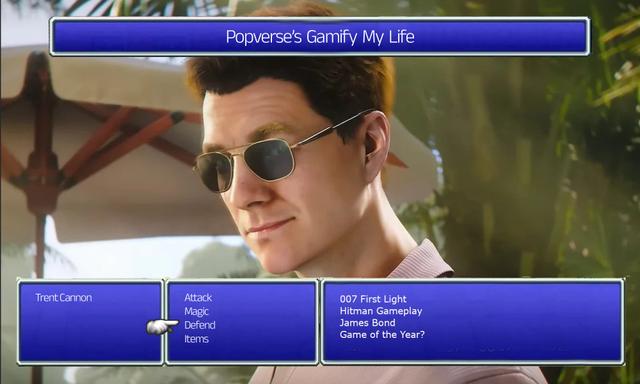If you click on a link and make a purchase we may receive a small commission. Read our editorial policy.
The Ken Problem
Barbie's Ken wasn't all he was promised. In fact, he was kind of terrible.

Before I watched Greta Gerwig's Barbie, I was excited to get into the Ken hype. I think Ryan Gosling is hilarious (check out his turn in The Nice Guys), and it seemed like fun to highlight a handsome dorky male character whose fictional function is to highlight how cool his female counterpart is.
Then, I watched the movie. And yes, Ryan Gosling steals the show in a lot of ways, and even, I'd argue, has more to do in the movie than Margot Robbie does. But what the movie showcased was not the fun loveable good-guy Ken I had been expecting, but something more troubling (which I found interesting) and then unresolved (which I found worrying). But that's no big deal. These things happen - marketing doesn't always align with the final product.
But I was surprised that people were leaving the film not just singing the praises of Ryan Gosling in the role (which I think is deserved), but also absolutely loving the character as a fun portrayal of masculinity without any conversation about what exactly he does in the movie, which - spoilers - is brainwash Barbies into becoming his mindless servants and taking over Barbieland. Sure, there is still a degree of naivete there - Ken takes forever to realize that patriarchy is not actually about horses - but it doesn't outweigh the harm that Ken does, nor does it excuse the fact that the movie ends up having Barbie take responsibility for Ken's feelings of being left out.
Last week, a writer writing under the pseudonym Colette Foy wrote for Huff Post about the similarities between Barbie's Ken and her abuser, who ignored boundaries, twisted language about who was hurting who, and purposefully used his power to harm her. Her observations really spoke to my discomfort with this line of thought in the film. While many have drawn parallels between Ken's position and the position of those in marginalized genders, the balance doesn't quite play out on screen. We never see Barbie purposefully harm Ken. She simply has no interest in him, and her lack of interest in Ken is kind of treated as an offense that warrants his actually harmful (not just resulting in hurt feelings) war against her and the other Barbies. But she should not be required to want to spend time with Ken in order to keep Ken from harming her. And yet, that never quite comes across in the movie. It may actually be the movie's biggest crime.
But the person who does fulfill the Promised Ken role is, bizarrely, Michael Cera's Allan, who also happens to be one of the only dolls in Barbieland who is a singular doll. There may be many Kens, but there's just one Allan. Allan is friendly, genuine, and not selfish in his interactions with Barbie or with Ken. He's there and happy, not unlike Barbie herself. He only begins to become distressed when the Kens take over, and then plans to flee with Barbie. But when Barbie does decide to go back and fight for her home, he's there alongside her, ready to help. He's a team player. He's actually Barbie's friend. And yet there is only one of him.
When you start to think about it - what could have happened if there were more Allans in Barbieland? Foy proposes that they could have been able to rise up with all the Barbies and take back their home. But would multiple Allans completely eliminate the need for Kens? Or would they simply stand up as a shining example of the joys of what actual silly masculinity could be. But alas, there is only one Allan. Clearly, a good man is hard to find.
Did Barbie's creator Ruth Handler really commit tax fraud? Yes!
Follow Popverse for upcoming event coverage and news
Find out how we conduct our review by reading our review policy
Let Popverse be your tour guide through the wilderness of pop culture
Sign in and let us help you find your new favorite thing.
















Comments
Want to join the discussion? Please activate your account first.
Visit Reedpop ID if you need to resend the confirmation email.